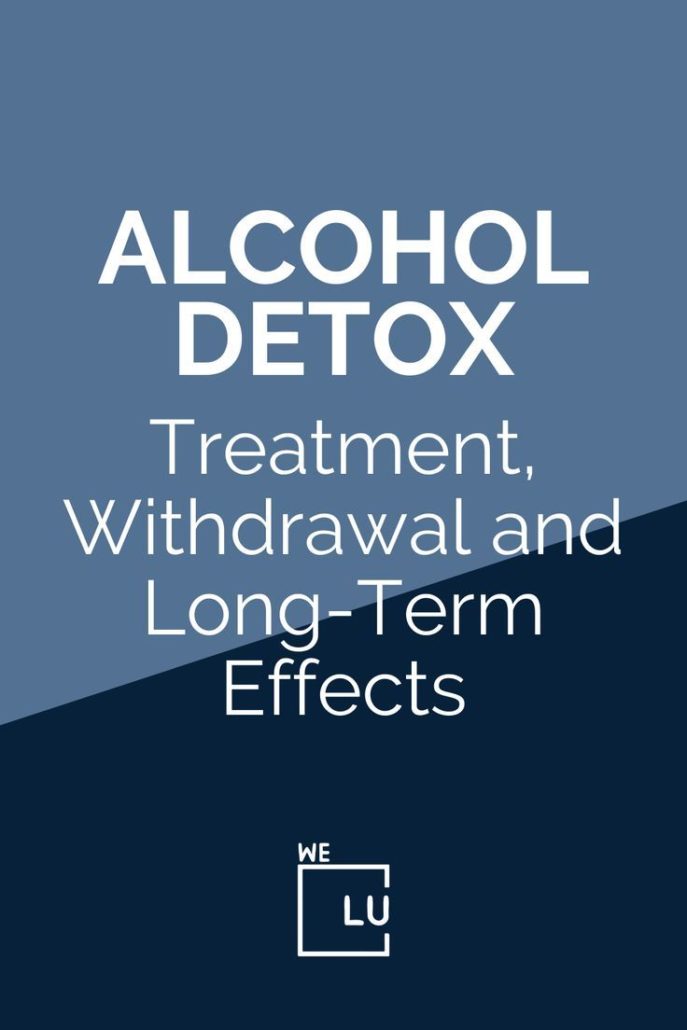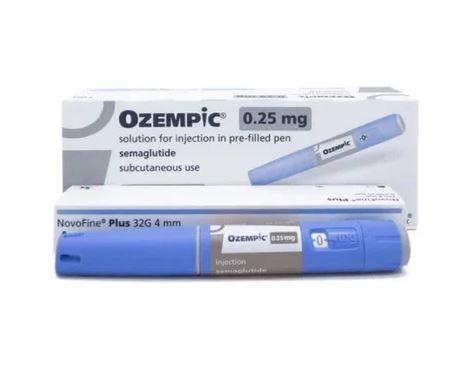Stay Sober Meaning
The meaning of “stay sober” extends far beyond just “drying out.” It’s a declaration of undying devotion to a life of sobriety, clarity of mind, and physical health.
Staying sober involves intentionally abstaining from consuming substances that can impair judgment, alter thinking, or lead to dependency. Staying sober isn’t just a choice for people in recovery from addiction; it’s an integral part of healing and regaining autonomy over one’s life. It’s a public declaration of intent to end one’s substance abuse and replace it with a more positive lifestyle.
To stay sober, one has to deal with different obstacles and triggers that may threaten their devotion. Internal struggles with cravings and temptations are as real as external social pressures and emotional upheavals. It requires resilience, self-awareness, and a set of effective strategies to overcome these obstacles and stay sober.
Building a strong community of support is essential for staying sober. Having loving and supportive people in one’s life can be a tremendous source of motivation, direction, and responsibility-taking. Having people like this to lean on in times of need is invaluable, as it provides a secure environment to vent, get sound advice, and find comfort.
Self-care is also important when trying to stay sober; building a solid foundation for sobriety through the pursuit of physical, mental, and emotional well-being is essential. Healthy coping mechanisms include exercise, mindfulness or meditation, hobbies, journaling, and therapy. Self-care is essential in maintaining sobriety because it strengthens resistance to relapse, lowers stress, and fosters an optimistic outlook.
One of the most important aspects of sobriety is learning to identify and control triggers. When cravings or relapse are triggered, it can be by either external or internal cues. They can range from the people, places, or events one associates with substance use to more abstract feelings like stress or isolation. When people know the factors that tend to set off their anxiety or depression, they can take preventative measures to alleviate their symptoms better.
Staying sober is not a solitary pursuit; it requires ongoing education and a commitment to personal growth. A better understanding of oneself and the factors contributing to substance abuse can be gained through learning more about addiction, engaging in therapy or counseling, and joining support groups. This introspection encourages growth, resilience, and the ability to make better decisions for one’s health.
Staying sober is an ongoing journey of discovering oneself, recuperation, and growth. It’s about deciding to live for things other than drugs and alcohol: genuine relationships, self-improvement, and a keen awareness of the value of the here and now. Individuals can get on the road to long-term recovery by prioritizing sobriety and implementing strategies that support mental, emotional, and physical well-being, giving them the tools they need to flourish in a substance-free lifestyle.
7 Reasons To Stay Sober
Leading a substance-free life is motivated by many compelling reasons for staying sober. While the particular reasons may differ from individual to individual, here are some typical and essential incentives for staying sober:
- Health and Well-being: Prioritizing physical and mental health is one of the most compelling reasons for staying sober. Staying sober can prevent several harmful health consequences, such as liver damage, heart issues, cognitive impairment, and a higher susceptibility to mental health disorders. Staying sober can lead to more restful sleep, increased mental clarity, higher levels of energy, and improved general well-being.

Skip To:
Learn More:
- Free Sobriety Calculator, Online Sober Calculator & Sober Day Counter. Relapse Prevention Sober Calculator & AA Sobriety Calculator.
- Inspirational Addiction Recovery Stories. View Real-life Sobriety Stories. Recovery Addicts Stories.
- 100 Sobriety Quotes. Top Quotes About Sobriety to Keep Motivated & Encouraged. Celebrate Recovery Quotes.
- Tips For Early Sobriety
- Sobriety Starts Here
- 50 Sobriety Gifts Ideas
- Sobriety Recovery Success Story, Kristine’s Journey
- Comfortable Drug And Alcohol Detox, First Step To Sobriety
- Personal Freedom: Staying sober can significantly enhance personal freedom and autonomy. An addiction often dictates one’s conduct and options, leading to losing influence and feeling confined. By staying sober, people regain the ability to make decisions compatible with their values, passions, and aspirations, allowing them to live a life filled with their own agency and independence.
- Improved Relationships: Staying sober can prevent straining and damaging relationships with family, friends, and romantic partners due to substance abuse. Maintaining sobriety offers a chance to reconstruct and reinforce these bonds, promoting reliance, transparent communication, and improved relationships. Staying sober enables individuals to be true to themselves and participate in significant, satisfying relationships.
- Emotional Well-being: Staying sober can help alleviate emotional challenges and prevent mood swings, anxiety, and depression. By staying sober, individuals can experience emotional stability, increased self-esteem, and improved mental well-being. Staying sober allows individuals to face and deal with underlying emotional issues, resulting in personal growth, resilience, and a more balanced emotional state.
- Financial Stability: Staying sober can significantly improve an individual’s financial situation. Staying sober can prevent financial instability and debt caused by the cost of purchasing substances, legal issues, and losing employment due to addiction. Maintaining sobriety enables people to take charge of their finances, exercise sound financial judgment, and direct their resources towards personal aspirations, establishing a basis for enduring financial security.
- Personal Growth and Fulfillment: Staying sober unlocks personal development and self-exploration opportunities. Remaining sober enables people to discover their passions, cultivate fresh hobbies, and strive towards significant objectives. Staying sober enables individuals to have a clear mindset and engage fully with life’s opportunities, leading to a sense of purpose, fulfillment, and personal transformation.
- Setting a Positive Example: Staying sober can inspire those battling addiction or contemplating a drug-free way of living. Exhibiting resilience, bravery, and persistence can motivate others to pursue assistance and adopt sobriety, resulting in favorable transformations in communities and society.
To sum up, staying sober presents various advantages, such as better physical and mental health, personal liberty, enhanced relationships, emotional stability, financial security, personal development, and the chance to be a positive role model. By staying sober, individuals can unlock a life of fulfillment, purpose, and authentic connection with themselves and those around them.
Get Help. Get Better. Get Your Life Back.
Searching for Accredited Drug & Alcohol Rehab Centers Near You? Or Mental Health Support?
Even if you have failed previously, relapsed, or are in a difficult crisis, we stand ready to support you. Our trusted behavioral health specialists will not give up on you. Call us when you feel ready or want someone to speak to about therapy alternatives to change your life. Even if we cannot assist you, we will lead you wherever you can get support. There is no obligation. Call our hotline today.
FREE Addiction Hotline – Call 24/7Alcohol Abuse Statistics
High-Intensity Drinking is a new trend discovered by the National Institute on Alcohol Abuse and Alcoholism (NIAAA). Alcohol consumption “at levels that are two or more times the gender-specific binge drinking thresholds” is included in the definition of high-intensity drinking (HID).
There isn’t much peer-reviewed research because it’s still a new trend. According to the information that is currently available, HID is widespread among binge drinkers and is frequently related to important occasions, particularly 21st birthdays and athletic events.
141,000
140,557 Americans die from the effects of alcohol in an average year.
Source: NIAAA
10%
1-in-10 Americans over the age of 12 have Alcohol Use Disorder.
Source: NIAAA
60%
Over half of Americans increased their alcohol consumption during COVID-19 lockdowns.
Source: NIAAA
Alcohol Abuse Factsheet
Alcohol Abuse Overview
An unhealthy drinking pattern that interferes with daily tasks. Alcohol abuse occurs when a person has a major drinking problem but is not yet physiologically dependent on alcohol. The failure to fulfill significant work, school, or family obligations is a symptom, as are legal or social issues or drinking in risky settings, as when operating a motor vehicle. Support groups, counseling, or relapse prevention medication are all possible treatment options.
Alcohol Addiction Treatment
Treatment may include support groups, counseling, or medication to prevent relapse.
- Medical procedure: Alcohol detoxification.
- Lifestyle drug: Abstinence.
- Medications: Sedatives, Vitamins, Alcoholism medication, and Antiparasitics.
- Therapy: Counseling psychology and Family therapy.
Alcohol Abuse Symptoms
The failure to fulfill significant work, school, or family obligations is a symptom, as are legal or social issues or drinking in risky settings, as when operating a motor vehicle.
- Behavioral: antisocial behavior, impulsivity, self-harm, or lack of restraint.
- Mood: anxiety, general discontent, or loneliness.
- Gastrointestinal: nausea or vomiting.
- Whole body: craving or blackout.
- Also common: are physical dependence, depression, or headaches.
Popular Staying Sober FAQs
-
Does The Staying Sober Quotes Help?
Reading staying sober quotes. Staying sober can serve as a source of inspiration and motivation for individuals on their path to sobriety. Quotes that resonate with personal experiences and convey messages of strength, resilience, and hope can provide support and encouragement. Although relying solely on quotes may not be enough to sustain sobriety, they can serve as a reminder of the significance of staying sober and strengthen one’s dedication to a life free of substances.
-
How To Stay Sober Without AA?
Consider options like consulting with addiction counselors or therapists, forming a support system through non-AA groups, participating in personal therapy, cultivating healthy routines, and discovering alternative support programs to aid in staying sober.
-
How To Stay Sober From Alcohol?
To remain sober, it is important to steer clear of triggers, establish a support network, create effective coping strategies, consider seeking expert assistance, learn about the impact of alcohol, establish unambiguous limits, and acknowledge achievements in staying sober.

Get Your Life Back
Find Hope & Recovery. Get Safe Comfortable Detox, Addiction Rehab & Mental Health Dual Diagnosis High-Quality Care at the We Level Up Treatment Centers Network.
Hotline (877) 378-4154
How To Stay Sober?
The journey of staying sober demands dedication, persistence, and the utilization of efficient tactics. Here are some crucial guidelines to maintain sobriety:
- Establish a Support System: Encircle yourself with people who encourage you to stay sober. Stay sober by connecting with friends and family or joining support groups where you can share experiences, seek guidance, and receive encouragement during challenging times.
- Prioritize self-care to nurture your physical, mental, and emotional well-being while staying sober. Participate in activities encouraging relaxation, such as exercising, meditating, or engaging in hobbies that provide happiness and satisfaction while staying sober.
- Stay sober by recognizing and removing triggers that could lead to a relapse. Staying sober may require refraining from being around specific individuals, locations, or circumstances linked to drug or alcohol consumption. Substitute previous habits with wholesome options to minimize the possibility of experiencing cravings while staying sober.
- Developing coping mechanisms is crucial for staying sober. Finding healthy ways to cope with stress, anxiety, and negative emotions is important. Explore breathing exercises, journaling, or seeking support from a trusted friend or therapist to cope with difficult situations while staying sober.
- Establish Realistic Objectives: Establish practical short-term and long-term objectives to remain concentrated and driven on staying sober. Acknowledge your progress and reinforce your commitment by celebrating milestones to stay sober.
- Don’t hesitate to seek professional help from addiction specialists, therapists, or counselors to receive guidance and support in staying sober. They can help you develop personalized strategies, address underlying issues, and navigate the complexities of maintaining sobriety.
- Practice Mindfulness: Cultivate mindfulness by staying present at the moment and being aware of your thoughts and emotions. Staying sober can be aided by practicing mindfulness, which enables you to identify and handle cravings, make intentional decisions, and react to triggers in a healthier manner.
- Make Lifestyle Changes: Assess your lifestyle and make necessary adjustments to create a supportive environment for your sobriety. This might involve distancing yourself from toxic relationships, adopting a healthier routine, and embracing activities that promote personal growth and well-being.
- Celebrate Staying Sober: Celebrate your staying sober achievements to reinforce positive behavior. Reward yourself with non-alcohol-related treats, engage in activities you enjoy, and share your milestones with your support network. Acknowledge that staying sober every day is a noteworthy achievement.
- Stay Committed: Remember that staying sober is a lifelong commitment. Stay committed to staying sober, stay determined to achieve your goals, and welcome the positive transformations that come with sobriety.
By applying these guidelines to remain sober, you can establish a solid base for a satisfying, drug-free existence. Remember that staying sober is unique to everyone, and discovering techniques that work best for you is crucial. Maintain your sobriety by staying strong, giving yourself time, and reaching out for help when necessary.
First-class Facilities & Amenities
World-class High-Quality Addiction & Mental Health Rehabilitation Treatment
Rehab Centers TourRenowned Addiction Centers. Serene Private Facilities. Inpatient rehab programs vary.
Addiction Helpline (877) 378-4154Proven recovery success experience, backed by a Team w/ History of:
15+
Years of Unified Experience
100s
5-Star Reviews Across Our Centers
10K
Recovery Success Stories Across Our Network
- Low Patient to Therapist Ratio
- Onsite Medical Detox Center
- Comprehensive Dual-Diagnosis Treatment
- Complimentary Family & Alumni Programs
- Coaching, Recovery & Personal Development Events
Is the Stay Sober Merch Helpful for the Recovery Journey?
The decision to stay sober is a deeply personal and transformative journey. While staying sober merchandise, such as a stay sober hoodie, stay sober shirt, or stay sober bracelet, can serve as visual reminders of one’s commitment, it’s important to understand that their effectiveness in the recovery journey may vary from person to person.
For some individuals, wearing stay sober merchandise can symbolize pride and determination, reminding them of their choice to live a substance-free life. The stay sober hoodie, shirt, or bracelet can be a personal statement, allowing individuals to express their commitment to sobriety and potentially spark conversations promoting awareness and support.

Additionally, stay sober merchandise can provide a sense of belonging and camaraderie within the recovery community. Seeing others wearing similar items can create a sense of unity and solidarity, fostering connections and support among individuals on similar paths.
However, it’s crucial to recognize that stay sober merchandise alone does not guarantee sobriety or replace the need for comprehensive recovery strategies. Recovery is a complex process that involves various factors, including therapy, support networks, coping mechanisms, and personal growth.
Ultimately, the value of stay sober merchandise lies in its ability to serve as a personal reminder and catalyst for conversations about sobriety. If wearing such items resonates with you and reinforces your commitment to staying sober, they can be helpful in your recovery journey. However, it’s essential to complement their presence with comprehensive support systems, professional guidance, and a proactive approach to maintaining sobriety.
World-class, Accredited, 5-Star Reviewed, Effective Addiction & Mental Health Programs. Complete Behavioral Health Inpatient Rehab, Detox plus Co-occuring Disorders Therapy.
CALL (877) 378-4154End the Addiction Pain. End the Emotional Rollercoaster. Get Your Life Back. Start Drug, Alcohol & Dual Diagnosis Mental Health Treatment Now. Get Free No-obligation Guidance by Substance Abuse Specialists Who Understand Addiction & Mental Health Recovery & Know How to Help.
Stay Sober With The We Level Up Dual Diagnosis Treatment
The definition of dual diagnosis, also known as co-occurring disorders, can vary among institutions. Generally, it refers to simultaneously treating a substance use disorder and a mental health disorder. Treating individuals with co-occurring disorders is a crucial aspect of our inpatient treatment. Co-occurring disorders are strongly linked to substance abuse.
We create treatment plans that address withdrawal symptoms, the psychological aspects of drug use, and managing underlying mental health disorders to set clients up for success. A comprehensive mental health assessment identifies treatment possibilities. Our dual diagnosis treatment center provides access to mental health counselors, medical professionals, behavioral therapy, and medication treatment, ensuring the highest quality of care.
We understand the intricate relationship between mental and substance abuse disorders, which can result in a destructive cycle of addiction. We specialize in dual-diagnosis cases, offering the best chance for healing and long-lasting recovery.
Recognizing that you may have a mental illness can be challenging. However, treating substance abuse becomes much easier once you receive a proper diagnosis and treatment. Only qualified medical professionals can diagnose these underlying conditions. If you suspect you have a co-occurring disorder, we encourage you to seek a reputable treatment center to begin your journey to recovery. Contact We Level Up today.
Experience Transformative Recovery at the We Level Up Treatment Center.
See our authentic success stories. Get inspired. Get the help you deserve.



Start a New Life
Begin with a free call to an addiction & behavioral health treatment advisor. Learn more about our dual-diagnosis programs. The We Level Up treatment center network delivers various recovery programs at each treatment facility. Call to learn more.
- Personalized Care
- Caring Accountable Staff
- World-class Amenities
- Licensed & Accredited
- Renowned w/ 5-Star Reviews
We’ll Call You
Staying Sober from Alcohol & Alcoholism Treatment Informative Video
Alcoholism, also known as alcohol addiction or dependence, is a condition that results from excessive consumption of alcohol. This disorder is characterized by repetitive and extreme drinking habits that can result in addiction and adversely affect an individual’s life. Various methods and tactics are implemented to address alcoholism and aid people in overcoming the disorder and ceasing harmful drinking behavior. These techniques focus on addressing the problem’s underlying causes and assisting the person in their journey toward recuperation.
Search Tips for Staying Sober, Sobriety Strategies Topics & Resources
Sources
- National Institute on Drug Abuse (NIDA) – Tips for Teens: Substance Abuse Prevention Website: https://teens.drugabuse.gov/parents/take-action/prevention-tips
- National Institute on Alcohol Abuse and Alcoholism (NIAAA) – Tips for Cutting Down on Drinking Website: https://www.niaaa.nih.gov/alcohol-health/overview-alcohol-consumption/moderate-binge-drinking
- U.S. Department of Health and Human Services (HHS) – Tips for Talking to Your Teen About Drugs Website: https://www.hhs.gov/ash/oah/adolescent-development/substance-use/drugs/talking-to-your-teen-about-drugs/index.html
- National Council on Alcoholism and Drug Dependence (NCADD) – Tips for Families Coping with Addiction Website: https://www.ncadd.org/family-friends/there-is-help/family-disease
- MedlinePlus – Substance Use Recovery Tips Website: https://medlineplus.gov/ency/patientinstructions/000949.htm
- National Institute of Mental Health (NIMH) – Tips for Managing Stress and Mental Health in Recovery Website: https://www.nimh.nih.gov/health/publications/tips-for-managing-stress/index.shtml





